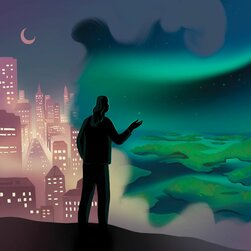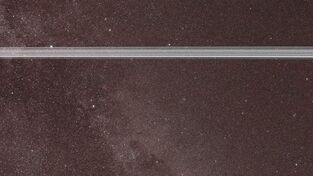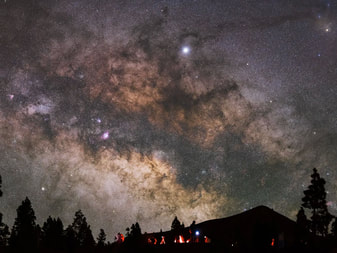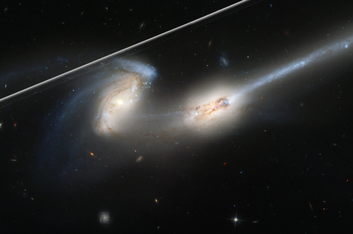Satellites Keep Photobombing Space Images. Astronomers Need a Fix
0 Comments
How Light Pollution Threatens Minnesota's Wildlife and Dark Skies Recorded observations of light’s impact on the environment date back to ancient Rome, when people noticed that their fires affected animal behavior, says John Barentine, an astronomer and freelance dark-sky consultant in Tucson, Arizona. Gas, and later electric, lights altered the appearance of the night sky through the 1800s and into the 1900s, when observatories moved outside of cities to escape sky glow, followed by an accelerated brightening of nighttime as the 20th century went on. Then came light-emitting diodes, or LEDs. A type of semiconductor, LEDs use less energy than other kinds of light bulbs typically used in streetlights and other outdoor fixtures, making their carbon footprint smaller. They last longer and cost less to operate. Those features make LEDs environmentally appealing in many ways, Barentine says, and society embraced them. Satellite megaconstellations are threatening astronomy. What can be done? The thought that all astronomy should be done off-Earth also elicits a response from John Barentine, executive officer and principal consultant at Dark Sky Consulting in Tucson, Arizona. This consulting group is focused on light pollution, dark skies and astronomy. As for space-based observatories, not all of them fly above the satellites in question, Barentine said, in particular, the Hubble Space Telescope that orbits sufficiently low that its images are sometimes directly affected by satellite trails. Barentine points to a recent search of Hubble's data archive by using machine learning. The result was finding more than 2,400 satellite trails in images. "We expect to see a big increase in that number for however many years of useful life the Hubble Space Telescope has left," he said. Why It’s Time for a Worldwide Lights-Out Program John Barentine, an astronomer with Dark Sky Consulting, previously managed the International Dark Sky Places Program, where he spoke with many city dwellers who got the chance to observe the Milky Way for the first time. The experience for many of them was extremely emotional. “It was rare that I’d talk to somebody who kind of shrugged their shoulders,” he says. “Many described it as a deeply spiritual, even [a] religious experience that I think taps into something that’s deep in our core as human beings.” |
MediaAvailable for radio/TV/print interviews and appearances relating to astronomy, light pollution, dark skies and more. Contact me! Archives
July 2024
Categories
All
|

 RSS Feed
RSS Feed